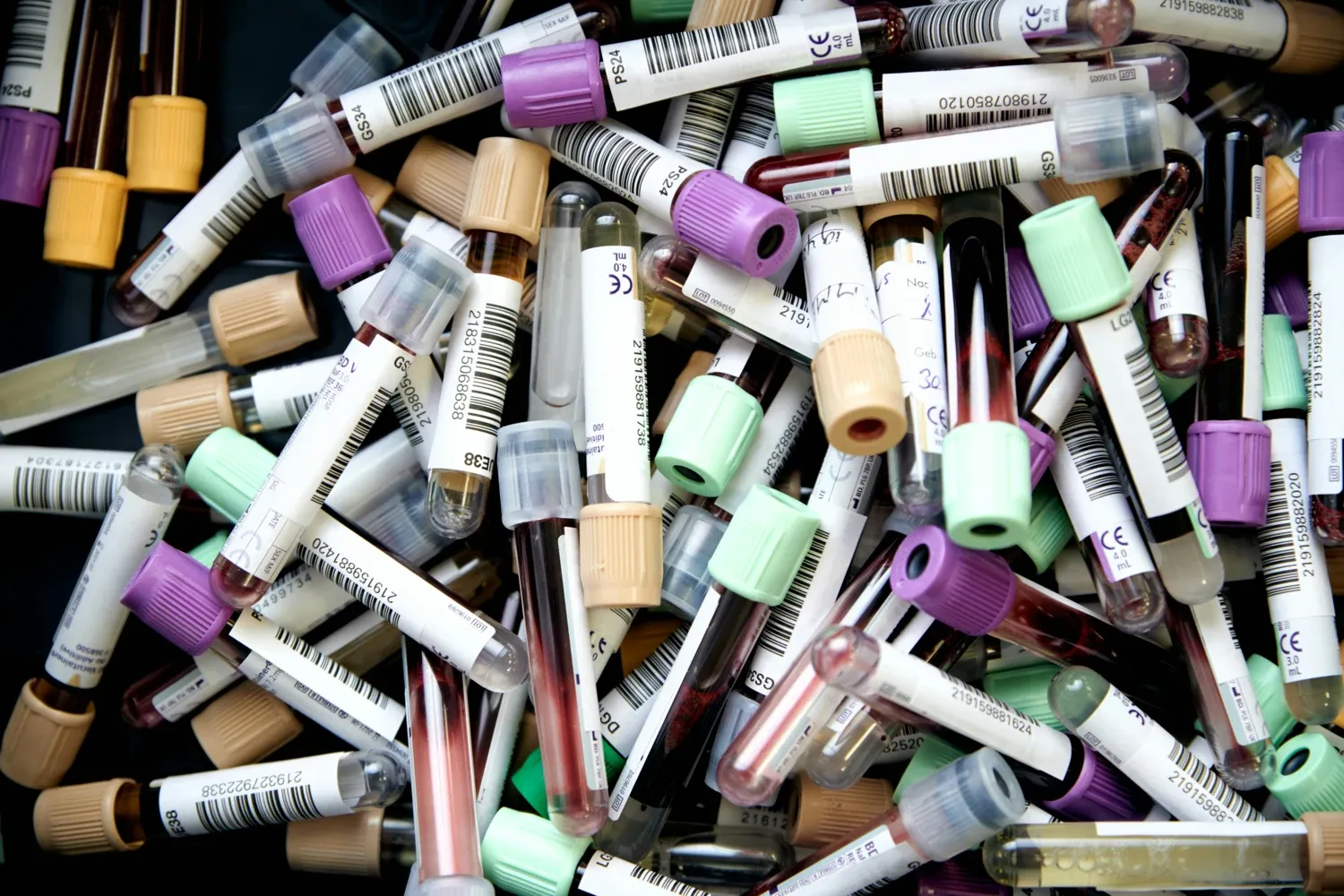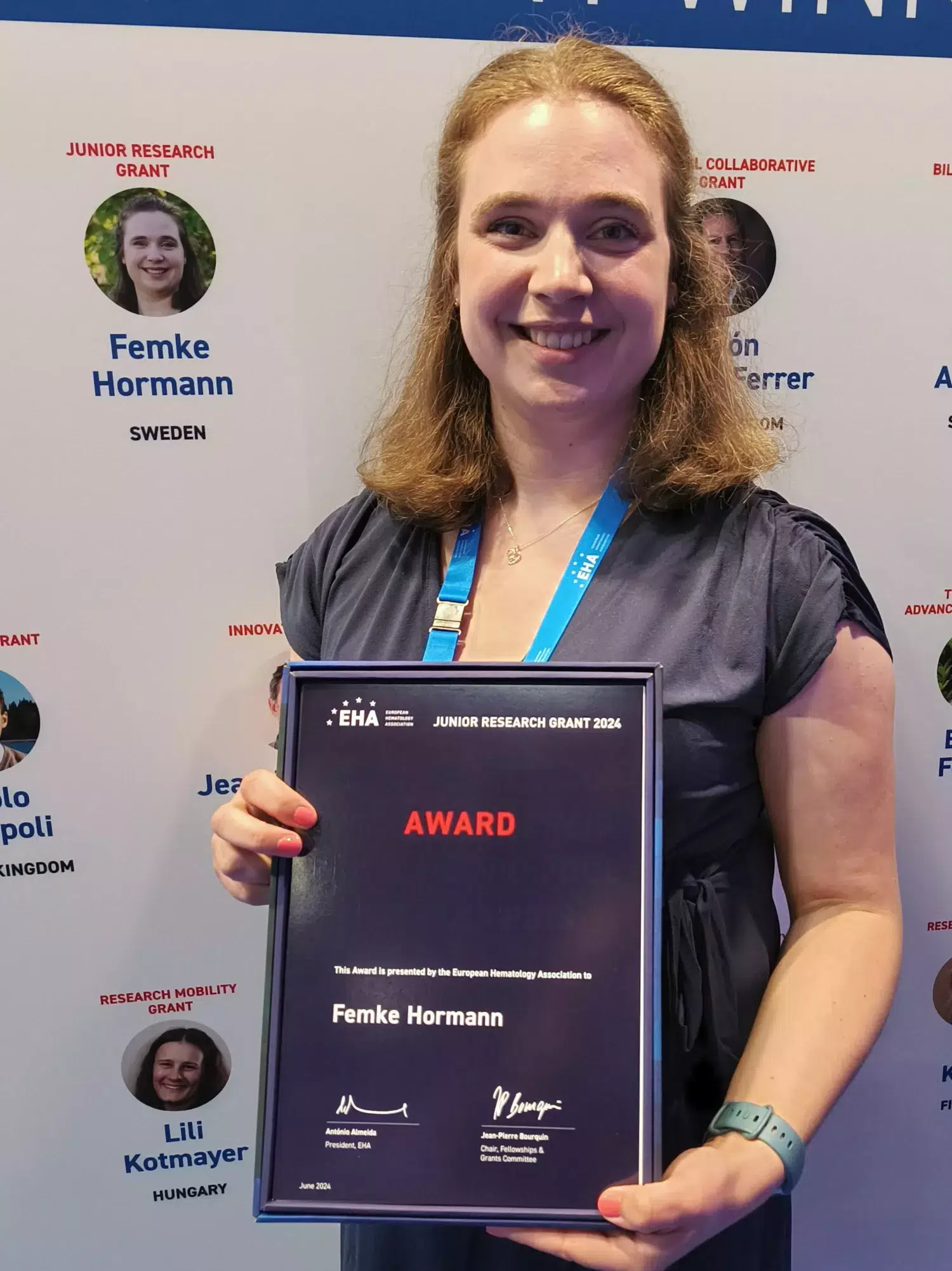Femke Hormann awarded Junior Research Grant from European Hematology Association

Femke Hormann has been awarded a prestigious Junior Research Grant by the European Hematology Association (EHA). The grant totals € 150 000 over three years.
EHA Research Grants support talented early career researchers in advancing their career towards becoming leaders of research groups. These grants are intended for basic and translational lab-based research in hematology.
The research conducted by Femke Hormann focuses on the mechanism-of-action of the nucleoside analogue nelarabine in the treatment of leukemia.

"While nelarabine is currently used in the treatment of patients with high-risk (pediatric) T-cell acute lymphoblastic leukemia, the mechanism-of-action remains unclear. In my project, I aim to determine how nelarabine exerts its anti-leukemic effects, using two genome- and proteome-wide techniques. The SciLifeLab platform Chemical Biology and Genome Engineering and its three units Chemical Biology Consortium Sweden, CRISPR Functional Genomics and Chemical Proteomics were critical in obtaining these genomic and proteomic data sets. Based on the results of these two techniques, I will evaluate how nelarabine kills leukemic cells and determine if we can use this information to improve how we use this drug in the clinic," says Femke Hormann, postdoctoral researcher at the Department of Oncology-Pathology.
"Even though this drug has been approved since 2005, the mechanism of action remains unclear, which limits the optimal use of this therapy in the clinic. Currently we don’t know what drugs we should combine nelarabine with, or which patients would benefit the most from nelarabine. To improve how we use nelarabine, patients would benefit from more knowledge of the molecular mechanisms underpinning the activity of this drug, which my project aims to achieve."
"I am very excited and honored to have been awarded the EHA junior research grant. This highly competitive grant is an important step in my career towards becoming an independent researcher and it is great to get recognition on a European level."
